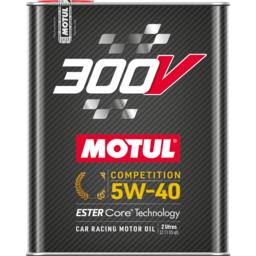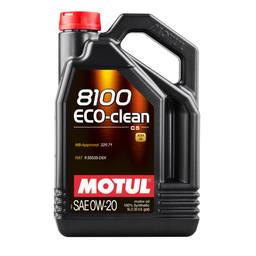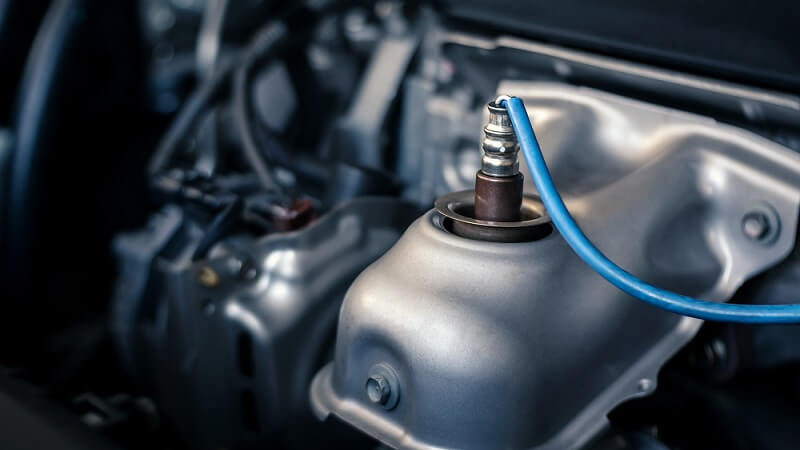The Dodge Charger is an iconic American muscle car known for its power, style, and performance blend. Throughout its history, the Charger has won the hearts of enthusiasts with its aggressive design and formidable engines.
In its 6th and 7th generations, the Dodge Charger offers powerful engine choices such as the V6 and HEMI V8 and the supercharged Hellcat. They’ve left a mark with their potent performances on the streets and tracks. Using the correct Dodge Charger oil type is crucial to maintain top performance. This ensures optimal lubrication, prolongs engine life, and keeps it running at its peak.
This is a detailed guide to help you choose the Dodge Charger oil type precisely. It explores why it matters, how to decipher your owner’s manual, 6th and 7th-generation Dodge Charger oil grade requirements, factors to consider when selecting the oil, the essential steps for a successful oil change, and some preventive maintenance tips. So, get ready as we explore the depth of oil types to keep your Charger running at peak performance.

Understanding the Dodge Charger’s Oil Type Requirements
Understanding the Dodge Charger’s engine oil type needs is crucial for maintaining its performance and longevity. Let’s discuss the different types of engine oil, oil grading, and Dodge’s oil approvals.
Types of Engine Oil
Full Synthetic Oil
Full synthetic oil, the finest quality and most durable oil available, is an ideal choice for Dodge Charger vehicles as it offers exceptional performance and protection. Its homogeneous molecular structure and improved lubricating characteristics provide outstanding protection for high-performance engines.
Pros:
- Great resistance to heat and oxidation with a long-lasting performance
- Superior engine protection even under extreme driving conditions.
- Extended oil change intervals compared to conventional oil.
Cons:
- Generally more expensive than conventional oil.
- Not applicable for older Charger models
Synthetic Blend Oil
Synthetic blend oil combines conventional and synthetic base oils to balance performance and affordability. It provides better protection and performance than conventional oil while remaining more budget-friendly than full synthetic options. Synthetic blend oil can be a suitable choice for Dodge Charger owners seeking enhanced protection without the higher cost of full synthetic oils.
Pros:
- Improved performance and protection compared to conventional oil.
- More affordable than full synthetic oil.
- Suitable for moderate to high-performance engines, including some Dodge Charger models.
Cons:
- Not as robust as full synthetic oil in extreme driving conditions.
- Shorter oil change intervals compared to full synthetic oil.

Mineral Oil
Mineral oil, aka conventional oil, is derived from crude oil. However, it is not commonly used in modern cars due to its limited performance and protection capabilities compared to synthetic oils. Mineral oil is less stable at high temperatures, leading to quicker breakdowns and increased engine wear over time.
Pros:
- Widely available and more affordable than synthetic options
- Suitable for older Charger models
Cons:
- Less resistance to heat and faster breakdown compared to synthetic oils
- Needs more frequent oil changes, especially in high-performance engines
Oil Grading Explained
After understanding the concepts of different oil types available, here is the explanation of oil grades. Oil grades are vital to maintaining a vehicle’s engine health and performance. Let’s break down what these grades mean and how they impact a vehicle’s performance in various conditions:
Viscosity
Viscosity tells us about an oil’s thickness and how it moves at different temperatures. Think of it like syrup: the thicker the syrup (or oil), the slower it pours. This thickness affects how quickly the oil can get around the engine when you start the car. We often say oil is “thicker” if its viscosity is high and “thinner” or “lighter” if its viscosity is low.
The first number in an oil’s grade, like the 5 in 5W or the 10 in 10W, is about how well the oil flows when it’s cold (like on a frosty morning). The “W” stands for “Winter.” So, a 5W oil flows easier in cold weather than a 10W oil, making it a better choice for chilly starts.
The second number, such as the 30 in 5W-30 or the 40 in 10W-40, shows how well the oil keeps its thickness at high temperatures when the engine works hard. A higher number here means the oil stays thicker, which can be good for protecting the engine in hot conditions.
Effects on Performance
Thicker oils are helpful in high-temperature conditions or heavy-duty driving. On the other hand, thinner oils provide a better fuel economy by reducing internal friction, but they must match the engine’s requirements to prevent wear and maintain efficiency.

Dodge’s Oil Approvals
Using oils that meet Dodge’s specifications and approvals is important in ensuring optimal engine performance and longevity of your Charger. Through its genuine MOPAR brand, Dodge specifies oils that meet Chrysler Material Standards and API (American Petroleum Institute) requirements.
An approved Dodge Charger oil type ensures compatibility with the engine’s design and performance requirements. It protects against wear, sludge buildup, and other potential issues. Additionally, approved oils are necessary to maintain warranty coverage and ensure proper engine function.
Deciphering Dodge Charger Owner’s Manual
The owner’s manual is the ultimate resource for information such as Dodge Charger oil requirements and type. It is typically found in the “Maintenance” or “Fluids and Lubricants” section. Look for details such as viscosity grade, API specifications, and any special recommendations from the manufacturer.
API (American Petroleum Institute) specifications, like API SM or API SM/CF, indicate the oil’s quality and performance level. These ensure it meets standards for engine protection, fuel efficiency, and emission control. In the manual, note any exceptions or specific recommendations for your Charger model, especially high-performance variants. Choosing the right oil based on manufacturer recommendations is crucial for optimal engine performance and reliability.
6th Generation Dodge Charger LX (2006-2010) Oil Guide
The 6th-generation Dodge Charger revived the iconic muscle car. It offered a perfect combination of performance, style, and modern features. Several components, including the rear suspension design, were taken from the Mercedes-Benz E-Class (W211).
Known for its assertive performance, the sedan offered four different engine configurations, depending on the model. The 2.7L V6 engine was given as a base. Above that was a 3.5L V6, a 5.7L Hemi V8, and a 6.1L Hemi V8, the most powerful engine in the 6th generation Dodge Charger lineup.
Here are the engine-specific oil requirements of the 6th generation Dodge Charger. It includes the oil capacities (given in quarts) and manufacturer-recommended oils.
| Engine Variant | Recommended Oil Grade | Capacity Required |
| 2.7L V6 Engine | API Certified SAE 5W-20 engine oil | 6 quarts |
| 3.5L V6 Engine | API Certified SAE 10W-30 engine oil — 5W-30 for colder climate | 6 quarts |
| 5.7L V8 Engine | API Certified SAE 5W-20 engine oil | 7 quarts |
| 6.1L V8 Engine | API Certified SM or SM/CF SAE 5W-40 Fully Synthetic engine oil or equivalent European Formula | 7 quarts |
7th Generation Dodge Charger LD (2011-2023) Oil Guide
The 7th generation Dodge Charger, codenamed LD, marked a significant evolution in Charger history, thanks to several updates inside and outside the car. Its exterior attained a more aggressive design with an updated grille, sleek headlights, and enhanced aerodynamics, and the engine options also underwent a power-up.
With the 7th generation, Dodge replaced the 2.7L V6 and 3.5L V6 engines of the 6th generation with a new 3.6L Pentastar V6 engine. The 5.7L V8 engine was kept intact, although Dodge introduced a new 6.2L supercharged V8 engine for the Charger SRT Hellcat model. Finally, it provided a 6.4-liter Hemi V8 engine to serve the middle trims of the 7th-generation Dodge Charger.
Here, we have listed the engine-specific oil requirements for the 7th-generation Dodge Charger.
| Engine Variant | Recommended Oil Grade | Capacity Required |
| 3.6L V6 Engine | API Certified SAE 5W-20 engine oil | 6 quarts |
| 5.7L V8 Engine | API Certified SAE 0W-20 engine oil | 7 quarts |
| 6.2L Supercharged V8 Engine | API Certified SAE 0W-40 Fully Synthetic engine oil | 7 quarts |
| 6.4L V8 Engine | API Certified SAE 0W-40 Fully Synthetic engine oil | 7 quarts |
Can I use 10w30 instead of 5w20?
It is strictly recommended to use only the correct oil viscosity specified for your car based on its model year and variant. Using different types of oil can have serious consequences. The 10W30 oil is thicker than 5W20, particularly when hot. It can provide more lubrication and sealing for older engines with increased wear. However, cold weather may strain your engine’s lubrication system, causing it to run harder than it should.
Get Genuine Dodge parts at Discount Rates
Welcome to Newparts.com, a premier destination for Dodge enthusiasts seeking top-tier genuine MOPAR and OEM components at unbeatable prices. We’re not just another online car parts store; we’re trendsetters, changing the game in car maintenance with our unwavering dedication to quality.
Our mission is simple: to empower every Dodge aficionado with seamless access to premium parts without the hefty price tag. We’re driven by a fervent dedication to quality, handpicking each item in our inventory to ensure it aligns perfectly with your Dodge’s specifications.
At NewParts.com, we’re more than just suppliers; we’re your trusted partners in keeping your Dodge running at its peak performance. We believe in delivering exceptional value without compromising on quality. We aim to offer significant savings while upholding the integrity of your vehicle.
Recognized as the go-to destination for Dodge enthusiasts who demand nothing but the finest, we take immense pride in being the preferred choice for savvy buyers who prioritize reliability and value in every automotive purchase.
So, if you’re ready to enhance your driving experience without emptying your wallet, look no further than NewParts.com. Welcome to a new era of automotive excellence.
Factors to Consider When Choosing Oil for Your Dodge Charger
So far, we have understood several things, from the Dodge Charger oil type options, oil grading concepts, and how to comprehend the owner’s manual to the 6th and 7th generation Dodge Charger oil types and requirements. The next step is to evaluate the factors when choosing oil for the Dodge Charger. Several factors should influence your decision to ensure optimal engine performance, longevity, and protection under various driving conditions.
Manufacturer Recommendations
Dodge’s oil recommendations for your specific Charger model are the first factor to consider. These guidelines come from thorough testing and engineering efforts and ensure they align perfectly with your engine’s design and performance demands. Following these recommendations ensures your engine is as compatible and functional as possible, enhancing its life and performance.
Climate
Consider the climate in which you primarily drive your Charger. Cold weather requires oil that flows easily at low temperatures to provide adequate lubrication during start-up. In contrast, hot climates necessitate oil with high-temperature stability to prevent viscosity breakdown and maintain engine protection.
Driving Conditions
Assess your typical driving habits and conditions. If you frequently tow heavy loads, engage in spirited driving, or participate in track events, you’ll need oil that can withstand high temperatures and stresses without breaking down. High-performance Chargers may benefit from specialized oils designed for racing or aggressive driving.

Vehicle Mileage and Age
The mileage and age of your Charger can influence its oil needs. Older vehicles or those with high mileage may require oil for higher-mileage engines, which often contain additives to condition seals and reduce oil consumption.
Oil Change Intervals
Oil change intervals also play a key role when selecting the Dodge Charger oil. Consider following regular oil change intervals. While synthetic oils typically offer extended drain intervals compared to conventional oils, following the manufacturer’s recommended service schedule is essential to maintain warranty coverage and prevent potential engine damage.
Steps for Changing Oil in Your Dodge Charger
We are now slowly summing up this guide with Dodge Charger oil change and maintenance tips. Changing the oil in your Dodge Charger is a vital maintenance task that ensures your engine runs smoothly and efficiently. Performing this task at regular intervals not only maintains optimal engine performance but also prolongs the life of your vehicle. Follow these step-by-step instructions to change the oil in your Dodge Charger:
Safety First
- Park your Charger on a level surface and engage the parking brake
- Allow the engine to cool down for a few minutes to prevent burns from hot oil
- Work in a well-ventilated area
- Wear your PPE, such as working gloves and goggles
Gather the Necessary Supplies
- Manufacturer-recommended oil (as specified in your owner’s manual)
- Oil filter compatible with your Charger’s engine
- Oil filter wrench (specified to your vehicle model and year)
- Drain pan
- Socket wrench set
- Funnel
- Shop towels or rags
- Oil filter drain tool (if needed)

Now follow these steps to systematically change the oil and oil filter on your Dodge Charger.
Drain the Old Oil
- Locate the oil drain plug underneath your Charger’s engine.
- Place the drain pan beneath the drain plug to catch the old oil.
- Use a socket wrench to loosen the drain plug carefully.
- Remove the plug by hand and allow the old oil to drain completely into the pan.
- After 15 minutes or so, the oil should be trickling. Install the drain plug back with a new drain plug washer.
Remove the Oil Filter
While the oil is draining, remove the old oil filter using an oil filter wrench. Use an oil filter wrench to loosen up the oil filter.
Install the new Oil Filter
Before installing the new oil filter, apply a small amount of fresh oil to the rubber gasket on the new filter. Carefully screw the new oil filter into place by hand, ensuring it is tightened securely but not over-tightened.
Add Fresh Oil
Using a funnel, pour the manufacturer-recommended amount of fresh oil into the engine through the oil filler cap.
Check Oil Level and Tighten Components
- Replace the oil filler cap after adding the fresh oil and tighten it securely.
- Start the engine and allow it to run for a few minutes to circulate the new oil.
- Turn off the engine and wait a few minutes for the oil to settle, then check the oil level.
- Add more oil if necessary to reach the proper level, but be careful not to overfill.
Dispose of Old Oil and Filter
Properly dispose of the old oil and filter at a designated recycling center or automotive store that accepts used oil.

Check for Leaks and Clean Up
- Inspect the area around the oil drain plug and filter for any signs of leaks.
- Once you’ve confirmed there are no leaks, carefully lower your Charger from the jack stands and remove the wheel chocks.
- Dispose of any used materials, such as gloves and shop towels, responsibly.
Which is Better: 5W20 or 5W30?
Both 5W20 and 5W30 motor oils are formulated to provide engine protection and efficiency under various conditions. The choice between them depends on the manufacturer’s recommendations and specific vehicle requirements.
The “5W” indicates the oil’s viscosity at cold temperatures, ensuring it remains fluid enough for cold starts. The numbers “20” and “30” represent the oil’s viscosity at high temperatures, with 5W30 being thicker than 5W20. This means 5W30 can offer better protection at higher temperatures, making it suitable for hotter climates or more strenuous driving conditions.
The primary consideration when choosing an engine oil should always be the vehicle manufacturer’s recommendation, as this is based on extensive testing tailored to the engine’s design.
However, other factors such as the vehicle’s age, the climate in which it’s driven, and the typical driving conditions (e.g., city driving vs. highway driving, towing, or racing) might influence the choice between a slightly thinner or thicker oil for optimal performance and protection.
Tips for Maintaining Your Dodge Charger’s Engine Health
We have covered almost everything, from the Dodge Charger oil type available, specific oil grades, and viscosity required for 6th and 7th-generation Dodge Chargers to the factors to consider while changing Dodge Charger oil and step-by-step oil changes, but this is not the end. Regular maintenance practices are required. Here are some essential tips to help you keep your Charger’s engine in top condition.
Regular Oil Changes
Adhere to the manufacturer’s recommended oil change intervals specified in your Charger’s owner’s manual. Regular oil changes are crucial for removing contaminants and replenishing essential additives that help protect the engine.

Monitoring Oil Levels
Check your Charger’s oil level regularly, especially before long trips or after extended periods of driving. Watch for signs of oil leaks or excessive oil consumption, which may indicate underlying issues that require attention.
Using Genuine Dodge Filters
Invest in genuine Dodge or high-quality oil filters designed to trap contaminants and effectively maintain oil cleanliness. Replace the oil filter with every oil change to ensure optimal filtration and engine protection.
Following Maintenance Schedule
Stay proactive with routine maintenance tasks Dodge recommends, including inspections, fluid changes, and component replacements. Following the manufacturer’s maintenance schedule helps identify potential issues early and prevents costly repairs down the line.
Get the perfect Dodge Charger Oil from Newparts.com
Looking for the right oil for your Dodge Charger? Look no further than Newparts.com. We offer a wide selection of genuine Dodge and OEM oil filters and oils specifically recommended for the Charger’s engine.
Rest assured, our oil filters and oils meet Dodge’s rigorous standards, ensuring optimal performance and engine protection. Whether you’re performing a routine oil change or addressing specific concerns, we’ve got you covered with the highest quality products. At Newparts.com, our top priorities are your satisfaction and Charger’s performance.
We just don’t stop there; we have everything else you need for maintenance, from air filters to spark plugs. Visit Newparts.com today for all your Charger maintenance needs.


















